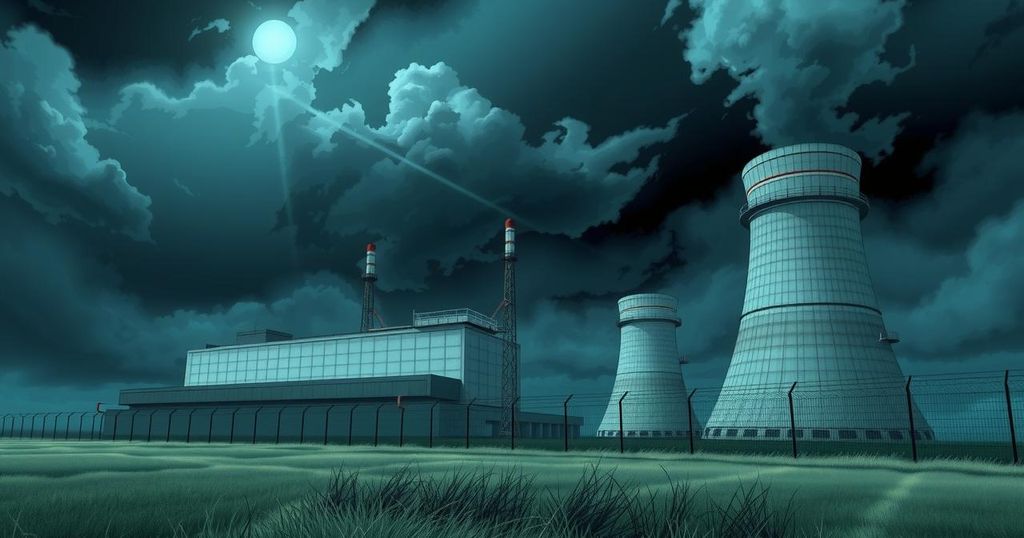Iran’s Nuclear Program: An Imminent Challenge for Trump and Security Risks in the Region

Iran’s nuclear program poses a significant challenge for the Trump administration as negotiations appear stalled, raising fears of an Israeli preemptive strike. Concerns have intensified following alarming advancements in Iran’s uranium enrichment, with hardliners gaining influence. Heightened tensions suggest an increased risk of military confrontation, urging the need for renewed diplomatic efforts.
Iran’s nuclear program poses an imminent challenge for the administration of Donald Trump, compounded by fears of a potential Israeli strike. Recent statements from Iran’s Foreign Minister Abbas Araghchi and UN Ambassador Amir Saeed Iravani indicate that negotiations regarding the nuclear deal with the United States are off the table. This has prompted nations including France, Greece, Panama, South Korea, Britain, and the US to convene a UN Security Council meeting to discuss these pressing concerns.
The International Atomic Energy Agency (IAEA) has raised alarms about Iran’s advancements toward weaponizing its stockpiles of enriched uranium. Iran’s Supreme Leader Ayatollah Ali Khamenei has dismissed US calls for discussions about the nuclear program, labeling them as “bullying.” Instead, Mr. Araghchi claims that Iran is focusing on consultations with the E3—Britain, France, and Germany—and separately with Russia and China.
The E3 had initially aimed to revive the 2015 nuclear agreement, which had resulted in the lifting of sanctions on Iran in exchange for curbing its nuclear ambitions. However, relations between Tehran and the IAEA have deteriorated, with allegations that Iran is withholding crucial information. During his first term, Trump distanced the US from the agreement, asserting it provided Iran excessive latitude to restart a military nuclear program and subsequently imposed a rigorous sanctions regime.
These sanctions have significantly impacted Iran, reducing its oil exports by approximately 80 percent by late 2020. Trump has sought to reinstate and expand such measures, including sanctions on Iran’s maritime operations and investigations into counter-smuggling activities. Freddy Khoueiry, a security analyst, warns that the intensification of US sanctions could empower hardliners within Iran, limiting diplomatic engagement and increasing Tehran’s determination to resist external pressure.
The analysts predict that as hardliner factions consolidate power in Iran, the likelihood of Iran escalating its nuclear capabilities rises sharply. There is a growing belief among these factions that possessing a nuclear deterrent is critical to safeguarding against both the US and Israel, potentially accelerating their pursuit of weapons-grade uranium. Despite warnings from the EU urging Iran to cease its nuclear escalation, diplomatic solutions appear increasingly elusive.
Moreover, the UK and Europe have aligned with the US in imposing sanctions that penalize Iran for its involvement in the Ukraine conflict, highlighting a multifaceted approach to countering Tehran’s influence. Iran continues to bolster its defense efforts, including enhancing drone capabilities and conducting military drills, while receiving missile components from China.
Israel views Iran as strategically vulnerable and, with American support under the Trump administration, is increasingly considering preemptive military action. Analysts theorize that such an action could provoke significant Iranian retaliation, resulting in heightened risks for regional security and conflict escalation across the Gulf states.
Furthermore, reports indicate that Iran could produce sufficient enriched uranium to develop several nuclear bombs monthly, raising alarms among international watchdogs. Israel may feel pressured to act swiftly, particularly as Iran is reportedly strengthening its air defenses. Any potential US military involvement complicates the dynamics further, as a sustained air campaign would be essential to diminish Iranian nuclear capabilities.
In conclusion, the convergence of these factors highlights a considerably heightened risk of military escalation with Iran in the upcoming months. As diplomatic channels seem increasingly strained, the potential for conflict remains significant, warranting close observation from the international community. The emerging geopolitical landscape thus accentuates the need for renewed dialogue and concerted efforts towards de-escalation for enhancing regional stability.
The article outlines the escalating tensions surrounding Iran’s nuclear program and the implications for American and Israeli actions under Donald Trump’s administration. With Iran dismissing negotiations with the US and advancing its nuclear capabilities, the likelihood of a military confrontation looms larger. The increasing influence of hardliners in Tehran combined with Israel’s potential preemptive measures underscores the precarious state of regional security, necessitating vigilant international engagement. The situation calls for a renewed focus on diplomatic solutions to mitigate the risks of escalation and confrontations in the near future.
Original Source: www.thenationalnews.com








